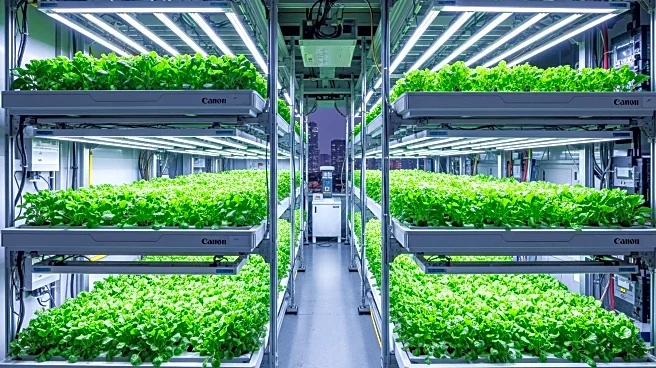What's Happening?
The Vertical Farming World Congress is set to open in Amsterdam, focusing on the role of vertical farming in global food systems amidst consolidation and rising cost pressures. Richard Hall, Chair of FoodBev Media, emphasizes the need for government recognition and support for vertical farming, advocating for equal access to incentives, grants, and research. Energy costs remain a significant challenge, with operators exploring partnerships and renewable sources to ensure viability. The industry is expanding its crop focus, with leafy greens, salad mixes, microgreens, and strawberries leading the way, though diversification into other crops is being trialed.
Why It's Important?
Vertical farming represents a significant shift in agricultural practices, offering sustainable solutions for urban areas where traditional farming is not feasible. The industry's growth could impact food security, reduce transportation emissions, and provide fresh produce in urban settings. However, the sector faces challenges such as high energy costs and the need for government support. Successful integration of vertical farming into food systems could lead to increased investment and innovation, benefiting both consumers and the environment.
What's Next?
The congress aims to foster dialogue on policy support and energy solutions, potentially influencing future government actions. Stakeholders may push for standardized regulations and sustainability measures to accelerate industry growth. Companies might focus on establishing competitive leadership in specific crops, while exploring energy partnerships to mitigate costs.
Beyond the Headlines
The development of vertical farming could lead to ethical considerations regarding land use and food production. As the industry grows, it may influence cultural perceptions of agriculture and food sourcing, potentially reshaping consumer habits and expectations.









